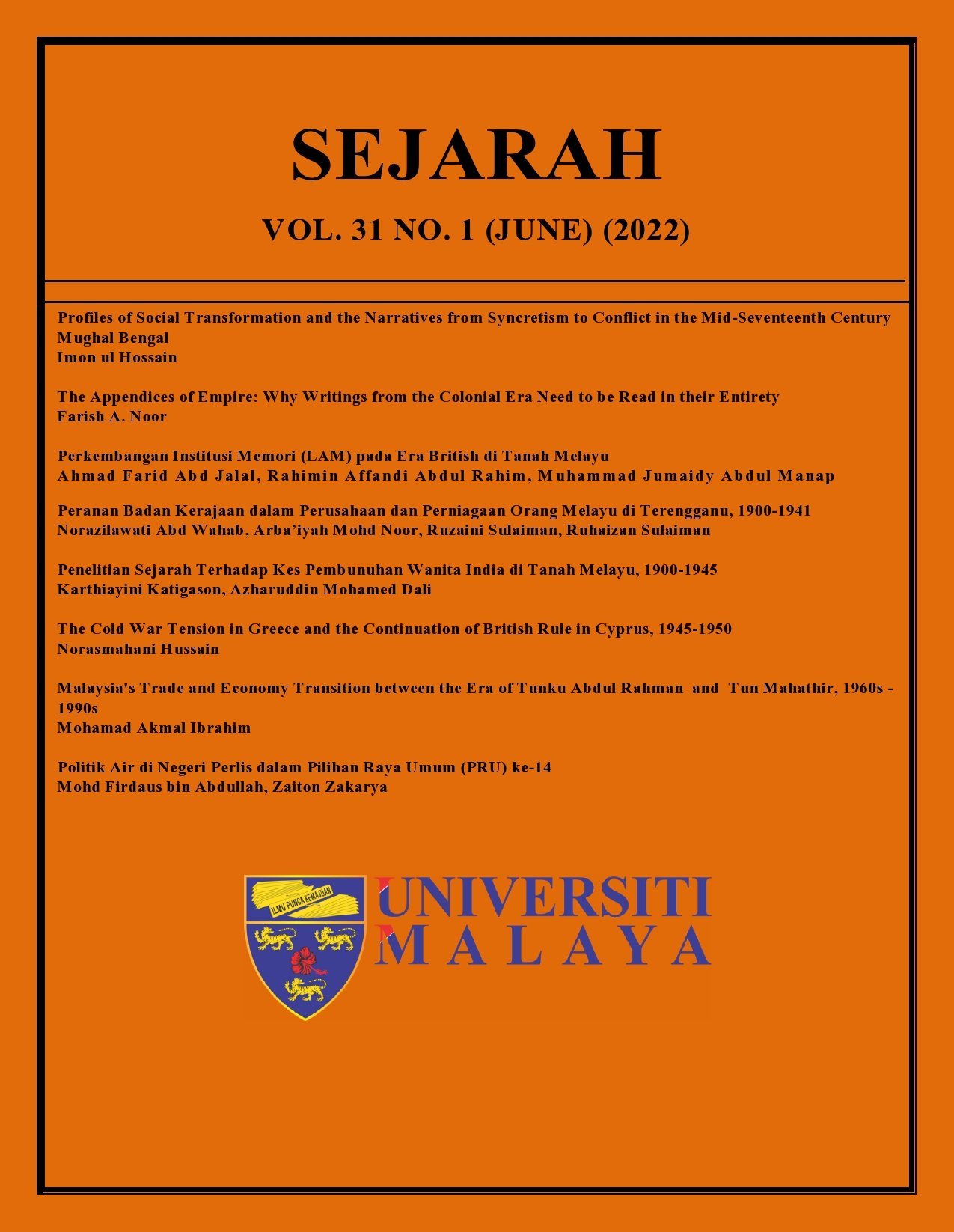The Appendices of Empire: Why Writings from the Colonial Era Need to be Read in their Entirety
DOI:
https://doi.org/10.22452/sejarah.vol31no1.2Keywords:
Orientalism, Colonial Writing, Colonial Stereotypes, Confirmation Bias, Colonial PropagandaAbstract
Among the many outcomes of the critique of Orientalism and the writings that emerged from the colonial era is the view that most, if not all, works that were published during the era of Empire are tainted by racial prejudice and Orientalist tropes and stereotypes of the non-Western Other. While this may be the case, this paper argues that there are still many reasons for postcolonial scholars to read such works today, from an informed and critical postcolonial perspective. This paper will look at three works by three colonial-era writers – Thomas Stamford Raffles’ The History of Java (1817); John Crawfurd’s Journal of an Embassy from the Governor-General of India to the Court of Ava (1829); and Henry Keppel’s The Expedition to Borneo of the HMS Dido for the Suppression of Piracy (1846) – and show how, through a deep and critical reading of the texts, we can see the contradictions, ironies and uncertainties of the imperial project; and by so doing debunk the notion that Western colonialism in Southeast Asia was a linear, organised and systematic process entirely determined by the colonial powers themselves.
Received: 24 May 2022
Reviewed: 25 May 2022
Accepted: 10 June 2022






